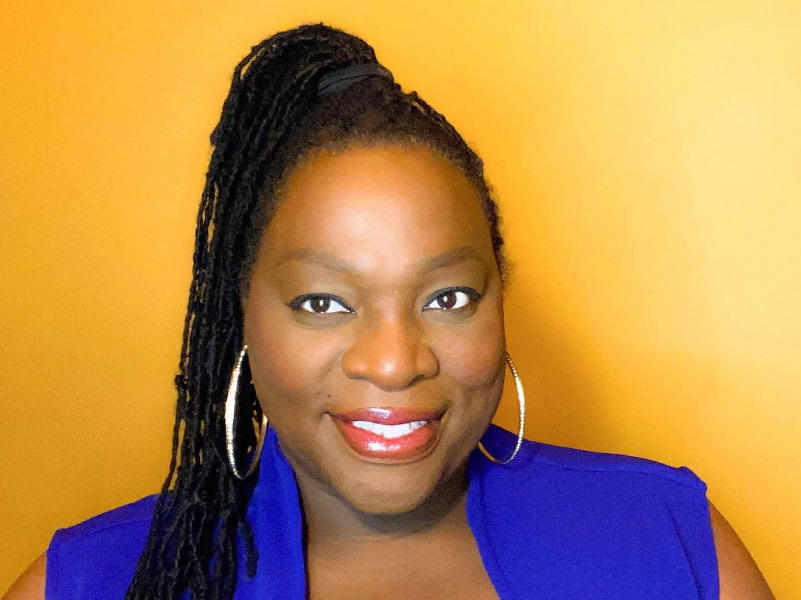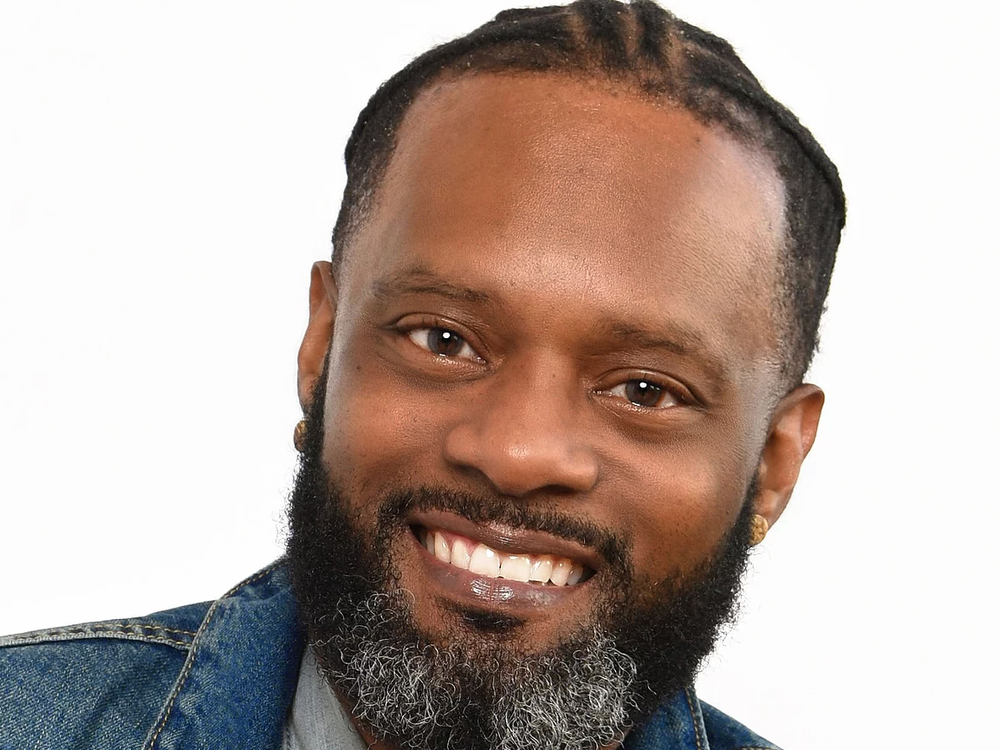Section Branding
Header Content
1st Black Trans Woman On Presidential HIV/AIDS Panel Seeks To Focus On Equality
Primary Content
Tori Cooper recently became the first Black transgender woman to serve on the Presidential Advisory Council on HIV/AIDS and she hopes her historic appointment helps shine a light on the disparities in health care for the Black trans community.
"I never expected that those folks would know who I am or have any idea about the work that's being done," she tells NPR.
Cooper, the director of community engagement for the transgender justice initiative at the Human Rights Campaign, says she is eager to advocate on behalf of all transgender and nonbinary people, including those who are living with HIV.
More than 40% of Americans diagnosed with HIV in 2019 were Black, according to the latest data from the Centers for Disease Control and Prevention. And Black transgender women have infection rates that are nearly four times higher than those for white trans women, according to a separate study.
In an interview with NPR, Cooper said inequality in delivering health care to marginalized groups is a big reason for the disparity in those numbers.
"My goal as an individual who's part of a collective is to make sure that we are bringing more equitable health outcomes and even the playing field [to] increase people's capacity to live healthily and happily," Cooper said.
The presidential council Cooper is joining — which was created in 1995 by President Bill Clinton — provides advice, information and recommendations on HIV and AIDS to the secretary of Health and Human Services.
With over 30 years of experience as a health and equity consultant, Cooper has worked to raise awareness for HIV in various volunteer roles and as executive director and founder of Advocates for Better Care Atlanta, which pushes to educate and empower marginalized people across the country.
"Being the first of anything is always daunting," Cooper said of her new role on the presidential panel. "But it also is a great opportunity to break down barriers and open doors for other people as well."
HIV and AIDS stigmas in the Black community create barriers to care
According to the latest data from the Centers for Disease Control and Prevention, in 2019, nearly 37,000 people have been diagnosed with HIV, with roughly 16,000 identifying as Black/African American.
In a CDC study of HIV prevalence in transgender women across seven U.S. cities, 62% of Black transgender women were infected, compared to 35% of Hispanic trans women and 17% of white trans women.
When it comes to Black people dealing with HIV and AIDS, the stigmas associated with the virus are the most common barriers to people seeking appropriate care, says the Rev. Rob Newells-Newton, director of national programs at the Black AIDS Institute. The group is dedicated to ending the HIV/AIDS epidemic in the Black community.
"When people feel stigmatized, they're not motivated to go get tested for anything, if there's stigma around HIV," Newells-Newton told NPR. "That's why culturally appropriate health care is really important in helping to reduce stigma and get people engaged in care."
Newells-Newton grew up believing HIV was only a "white gay man's disease." Now as a Baptist minister, he says the church has been a big source of the stigma associated with HIV — as the many common ideas and misconceptions about the virus first appeared in the early 1980s.
"I still can talk to people who go to family dinners and their family will break out paper plates for them because they're living with HIV, thinking that it might be contagious that way. So we have a lot of education to do to reduce some stigma," Newells-Newton said.
Last year, the institute launched the "We The People" campaign, a Black strategy to end HIV, by addressing disparities in health care and the stigmas associated with the virus.
"Stigma is a huge barrier that is really hard to address, is hard to quantify, and I think that's one of our biggest struggles going forward," Newells-Newton said.
Cooper wants to give the trans community a higher profile
The federal government's investment in the response to HIV has risen to more than $28 billion per year, according to the U.S. Department of Health and Human Services. Agencies such as HHS, the CDC and National Institutes of Health provide research, funding, testing and other resources to increase the awareness and prevention of HIV and AIDS.
In her appointed position, Cooper says she's aiming to prioritize the rights and the health outcomes for the trans community, more specifically, for the Black trans community.
"This work has never been more critical, and I look forward to working with my colleagues on [the presidential council] to help bring an end to the HIV epidemic," Cooper said.
Copyright 2021 NPR. To see more, visit https://www.npr.org.


